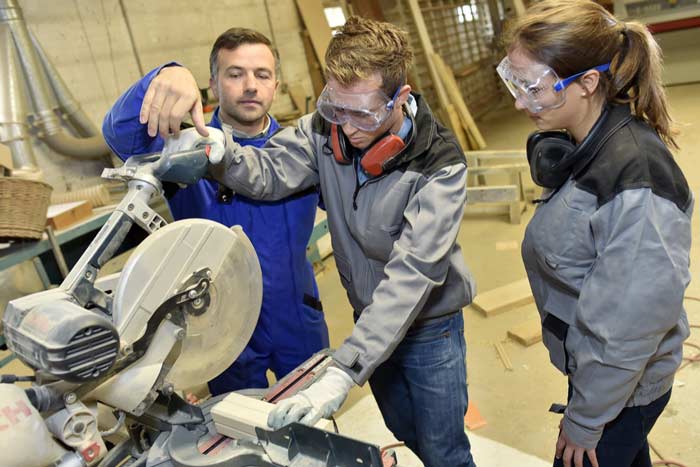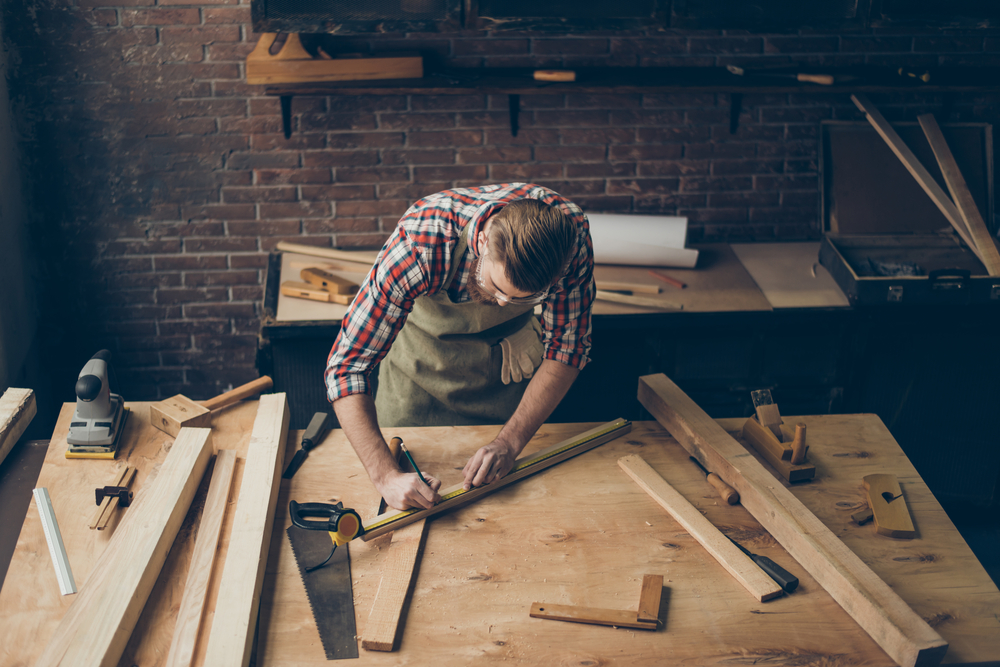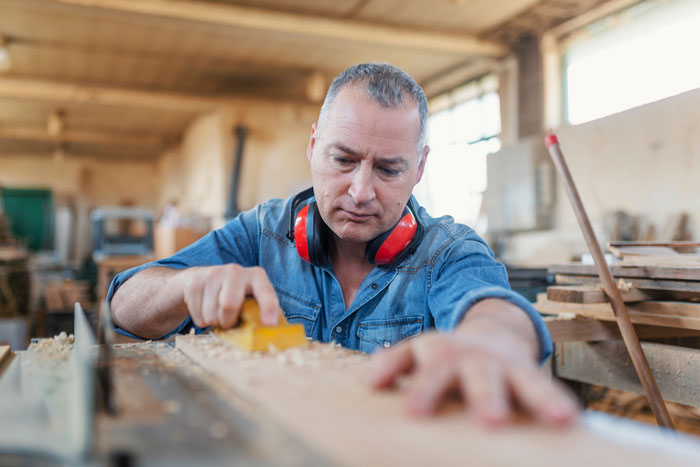Are you considering a do-it-yourself carpentry project at home? There’s a lot to learn, but it’s a fun and rewarding experience! Many have turned to woodworking not only for practical reasons but also to create something unique to be proud of. That said, there are some things you should learn before you decide to take a gamble with your own handyman skills. Let’s check out some important carpentry tips for beginners to help you get started.
Purchase a Variety of Tools
When you’re first starting out, it’s likely that you won’t have a full toolbox worth of supplies. But that’s okay as long as you have some essential tools that you can work with. Some staple items that we do recommend having on hand or purchasing include a hand and circular saw, claw hammer, tape measure, chisel, screwdrivers, jack plane, power drill and drill bits, nail set, level, block plane, layout square, utility knife, router, and a sander to get started.
You’ll Need a Workbench
If you plan on doing woodworking, then you’ll need a good workbench to use. The design won’t matter too much when you’re starting out, but you should definitely pick one that can handle some weight and contains a built-in vice. The bench should also be the right height to fit you and the way you work.
Set Up a Clutter-Free Workstation
There’s no denying that any beginner carpenter is going to make a bit of a mess or be overwhelmed by what’s possible in the craft. That’s normal! Therefore, take the time to set up a work area around your table that’s clean, clutter-free, well-lit, well-ventilated (very important) and comfortable to practice in. This could inspire you to keep at it and improve your skills further. Painters and writers employ much the same techniques to help them focus and remain invested in their work.
Get to Know Different Woods
Every type of wood behaves differently. From exotic hardwoods to cheap and affordable alternatives, there’s a lot of species to choose from! Our advice is to brush up on the essentials of any woods you want to work with before you start your project. Take the time to educate yourself on their strengths and weaknesses, and you may find that the wood you wanted to work with isn’t suitable for what you want to do. Or, you could also find out that there’s a less expensive alternative widely available. We recommend working with more basic and affordable woods such as pine for beginners.
Learn How To Measure Properly
Basic math is one essential skill you’ll need as a good carpenter. For every project, you’ll need to measure all the materials and perform calculations during your projects. This includes reading blueprints, understanding dimensions for supplies, calculating sizes and distances, and determining the total amount of materials based on the given budget. A wrong measurement or bad calculation can cause a whole number of problems and completely ruin a project. So learning how to properly measure and perform basic math calculations is a must for every carpenter.
 Take a Woodworking Course
Take a Woodworking Course
Before you start sawing away, you should know how to properly sand a surface, choose the type of wood, add varnish to the wood, and know how to safely cut the wood without splintering the surface. If you have not already done so, it’s important to take a beginner woodworking course that will teach you all the basics.
Get Comfortable with Different Tools
If you have a wide variety of tools at your disposal, now’s the time to get used to using them! Some beginners are initially nervous or even afraid to work with more imposing tools, especially those that are sharp and heavy, and it can stop them from pursuing their carpentry skills further. Overcoming this is all part of the journey toward developing your skills. Then, once you practice further, you’ll be refining these skills in a safe and comfortable manner, familiar with how each tool handles and reacts to you. This can make even the most boring of carpentry chores turn into chances to get creative and have fun! The more you get to know your tools, the better you can practice.
Practice, Practice, Practice
Speaking of practice, to master the art of carpentry it takes a lot of it. Therefore, try to start off with smaller projects that can help you learn to master some of these necessary essential skills. Then, once you feel more confident, move on to more moderate projects as you progress such as refurbishing decks. This is where being familiar with your tools will come in handy.
Until you’ve mastered the skill of carpentry, it’s best to leave the big jobs to the pros. One small mistake can cost you a whole lot of regret, time, and money. So leave the big project in the hands of someone who has the experience and know- how to get the job done right. At To Do-Done, we can help you carry out any carpentry projects that you need taken care of. Call or contact us today to find out more.


